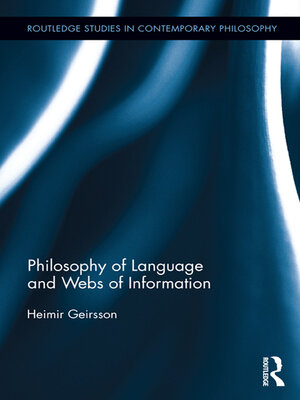Philosophy of Language and Webs of Information
ebook ∣ Routledge Studies in Contemporary Philosophy
By Heimir Geirsson

Sign up to save your library
With an OverDrive account, you can save your favorite libraries for at-a-glance information about availability. Find out more about OverDrive accounts.
Find this title in Libby, the library reading app by OverDrive.



Search for a digital library with this title
Title found at these libraries:
| Loading... |
The nature of propositions and the cognitive value of names have been the focal point of philosophy of language for the last few decades. The advocates of the causal reference theory have favored the view that the semantic contents of proper names are their referents. However, Frege's puzzle about the different cognitive value of coreferential names has made this identification seem impossible. Geirsson provides a detailed overview of the debate to date, and then develops a novel account that explains our reluctance, even when we know about the relevant identity, to substitute coreferential names in both simple sentences and belief contexts while nevertheless accepting the view that the semantic content of names is their referents. The account focuses on subjects organizing information in webs; a name can then access and elicit information from a given web. Geirsson proceeds to extend the account of information to non-referring names, but they have long provided a serious challenge to the causal reference theorist.






